
Pogradec Region: Albania's Lakeside Gem
Nestled along the shores of Lake Ohrid, the Pogradec Region is a picturesque escape in southeastern Albania. Famous for its crystal-clear waters, the lake is one of the oldest and deepest in Europe, making it a UNESCO World Heritage Site. The region is surrounded by lush hills and mountains, offering a perfect blend of natural beauty and tranquil serenity. Visitors can enjoy a leisurely walk along the lake promenade, take a refreshing swim, or indulge in a scenic boat ride. In addition to its natural allure, Pogradec boasts a rich cultural heritage. The town itself is dotted with charming cafés, bustling markets, and historic buildings. Don't miss the Drilon National Park, a serene spot with springs, canals, and swans gliding through the water. The park is perfect for a relaxing picnic or a romantic paddleboat ride. Food lovers will delight in the region's culinary offerings. Pogradec is known for its delicious fish dishes, particularly the koran, a type of trout found in Lake Ohrid. Pair your meal with some local wine for a true taste of Albanian hospitality. Whether you're seeking adventure, relaxation, or a cultural experience, the Pogradec Region has something for everyone.
Local tips in Pogradec Region
- Visit during spring or early autumn for the best weather and fewer crowds.
- Don't miss the sunset views from the lake promenade.
- Bring comfortable walking shoes for exploring the natural parks and trails.
- Try the local koran fish at a lakeside restaurant for a true culinary treat.
- Carry cash, as some small shops and cafés might not accept cards.
Pogradec Region: Albania's Lakeside Gem
Nestled along the shores of Lake Ohrid, the Pogradec Region is a picturesque escape in southeastern Albania. Famous for its crystal-clear waters, the lake is one of the oldest and deepest in Europe, making it a UNESCO World Heritage Site. The region is surrounded by lush hills and mountains, offering a perfect blend of natural beauty and tranquil serenity. Visitors can enjoy a leisurely walk along the lake promenade, take a refreshing swim, or indulge in a scenic boat ride. In addition to its natural allure, Pogradec boasts a rich cultural heritage. The town itself is dotted with charming cafés, bustling markets, and historic buildings. Don't miss the Drilon National Park, a serene spot with springs, canals, and swans gliding through the water. The park is perfect for a relaxing picnic or a romantic paddleboat ride. Food lovers will delight in the region's culinary offerings. Pogradec is known for its delicious fish dishes, particularly the koran, a type of trout found in Lake Ohrid. Pair your meal with some local wine for a true taste of Albanian hospitality. Whether you're seeking adventure, relaxation, or a cultural experience, the Pogradec Region has something for everyone.
When is the best time to go to Pogradec Region?
Iconic landmarks you can’t miss
Skanderbeg Square
Experience the vibrant heart of Albania in Skanderbeg Square, Tirana: where history, culture, and modern life converge.
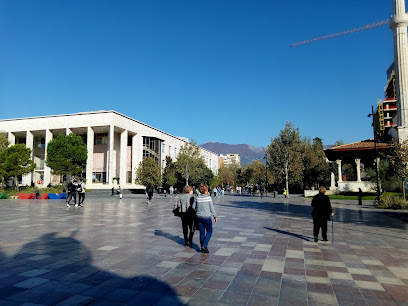
Berat Castle
Explore Berat Castle, a historic fortress in Albania with stunning views, ancient churches, and a rich cultural heritage dating back to the 4th century BC.
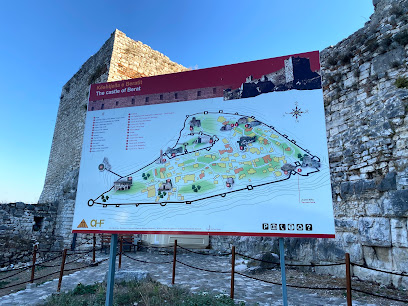
Elbasan Castle
Explore Elbasan Castle: A historic Albanian fortress with Roman & Ottoman roots, offering cultural immersion and panoramic city views.
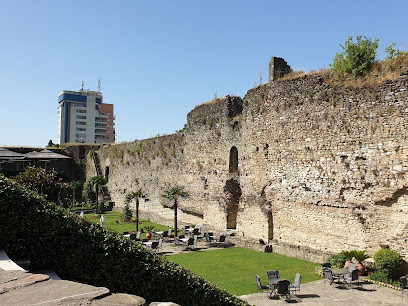
National Park of Drilon
Discover Drilon National Park: A picturesque Albanian escape with serene lakes, lush greenery, and a rich history waiting to be explored.
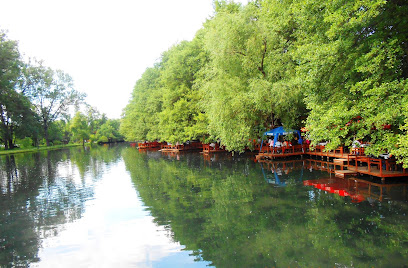
Hotel Enkelana
Experience tranquility at Hotel Enkelana in Pogradec: Lakeside comfort, stunning views, and Albanian hospitality await on the shores of Lake Ohrid.
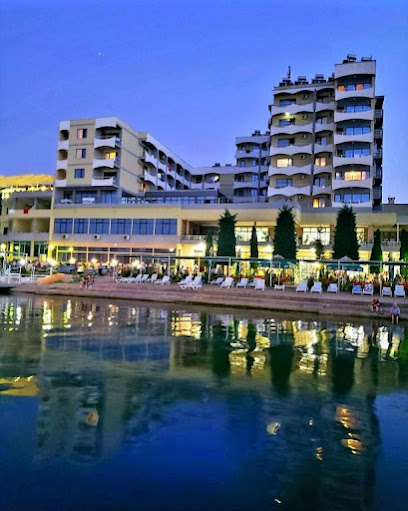
Camping ARBI
Experience lakeside serenity at Camping ARBI in Pogradec, Albania, with stunning views, outdoor activities, and a welcoming atmosphere by Lake Ohrid.
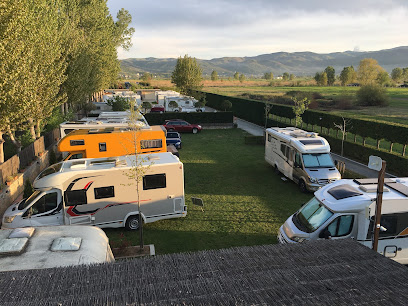
The Change
Experience a fusion of flavors at The Change in Pogradec, where Albanian tradition meets modern culinary artistry on the shores of Lake Ohrid.
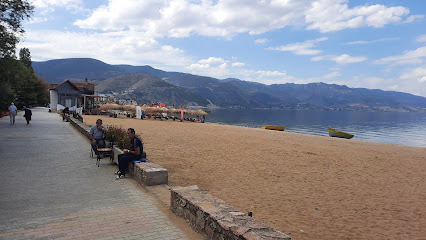
Restorant Zgara Familjare
Experience authentic Albanian cuisine at Restorant Zgara Familjare in Pogradec, where traditional flavors and a welcoming atmosphere await.
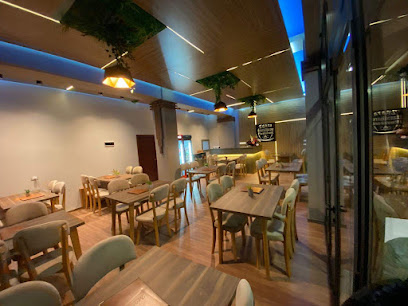
Restorant Cavos
Experience authentic Albanian cuisine with breathtaking lake views at Restorant Cavos in Pogradec. Fresh seafood, local wines, and warm hospitality await.
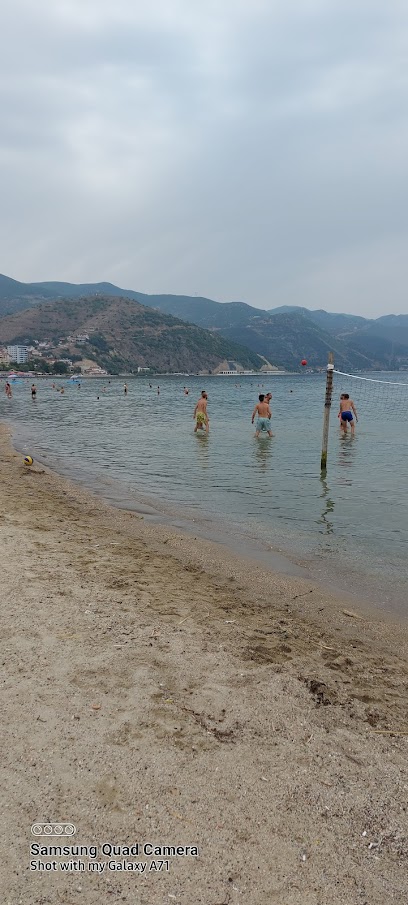
Prespa National Park
Discover Prespa National Park: A Balkan treasure of pristine lakes, diverse wildlife, rich history, and tranquil landscapes shared by Albania, Greece, and North Macedonia.
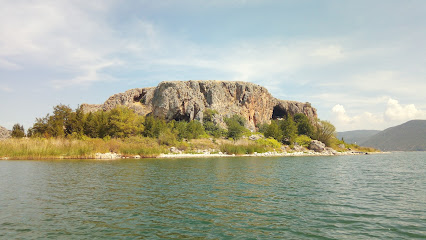
Hotel Hymeti's Palace
Experience lakeside luxury at Hotel Hymeti's Palace in Pogradec, Albania. Enjoy stunning views, elegant accommodations, and a perfect base for exploration.
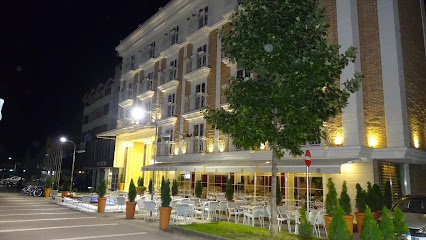
Sherlock Irish Pub
Experience the best of Irish hospitality and Albanian nightlife at Sherlock Irish Pub in Pogradec. Live music, great drinks, and unforgettable memories!
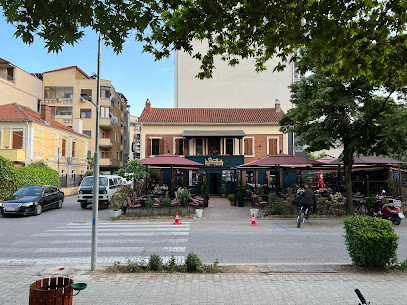
Rusi Grill
Experience authentic Albanian flavors at Rusi Grill in Pogradec – where delicious dishes and a warm atmosphere await every traveler.
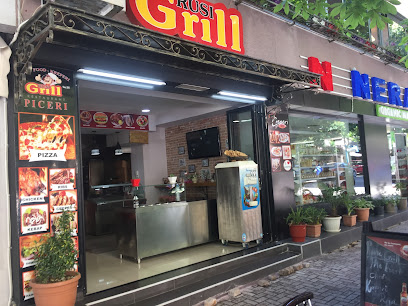
Oborri Familjar
Experience authentic Albanian cuisine and warm hospitality at Oborri Familjar in Pogradec, a family-run restaurant with traditional flavors.
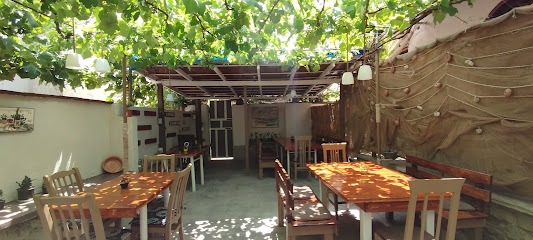
SEVEN
Experience the cozy ambiance and delightful brews at SEVEN, Pogradec's beloved coffee shop, perfect for relaxation and local flavor.
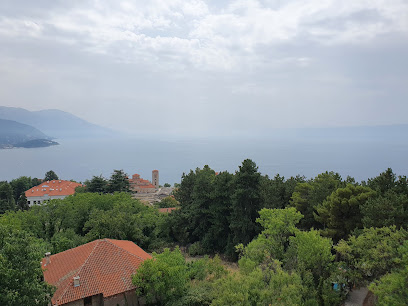
Unmissable attractions to see
Mosque of Ali Pasha
Explore Ohrid's Ottoman heritage at the historic Mosque of Ali Pasha, a testament to the city's diverse cultural influences.
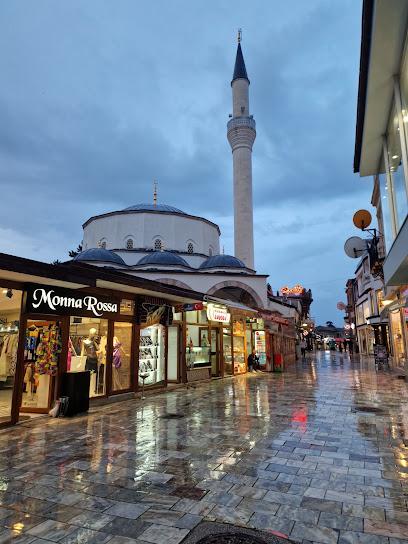
Chinar - Kame (Ohrid Pearl)
Discover the allure of authentic Ohrid pearls and handcrafted silver jewelry at Chinar - Kame, a treasure of Macedonian craftsmanship.
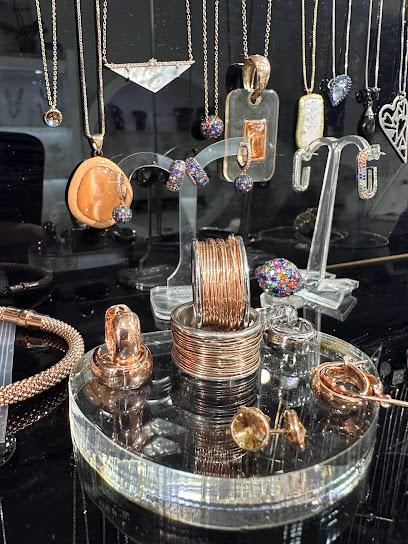
Talevi - Ohrid Pearls
Discover the allure of Ohrid Pearls at Talevi, where a century-old family tradition creates exquisite, handcrafted jewelry with a unique, shimmering beauty.
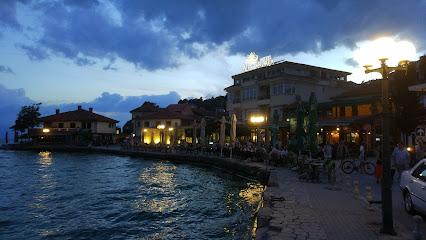
Filevi - Original Ohrid's pearls
Discover the allure of Filevi - Original Ohrid's Pearls, where a century-old family tradition creates exquisite jewelry from the depths of Lake Ohrid.
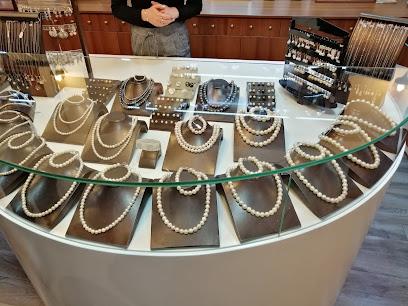
Ohrid Pearls Filevi (Dr. Pavel Filev)
Discover the lustrous legacy of Ohrid pearls at Filevi, where tradition meets exquisite craftsmanship since 1928 in the heart of Ohrid.
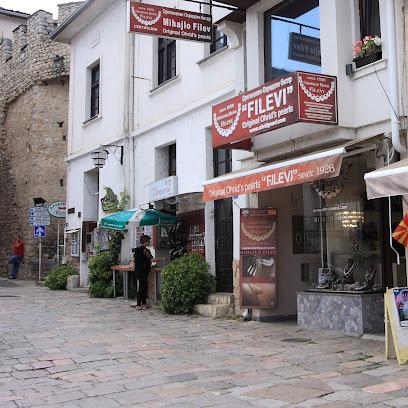
Original Ohrid Pearl Filevi
Discover the lustrous beauty of Original Ohrid Pearls, handcrafted with a time-honored secret technique passed down through generations since 1928.
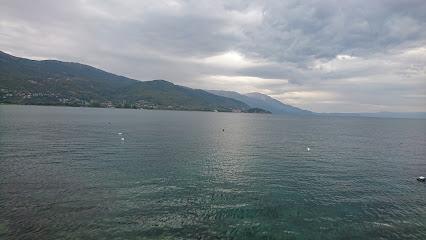
Omnia Night Club
Experience Ohrid's electrifying nightlife at Omnia Night Club, a vibrant disco with diverse music, themed nights, and an energetic atmosphere.
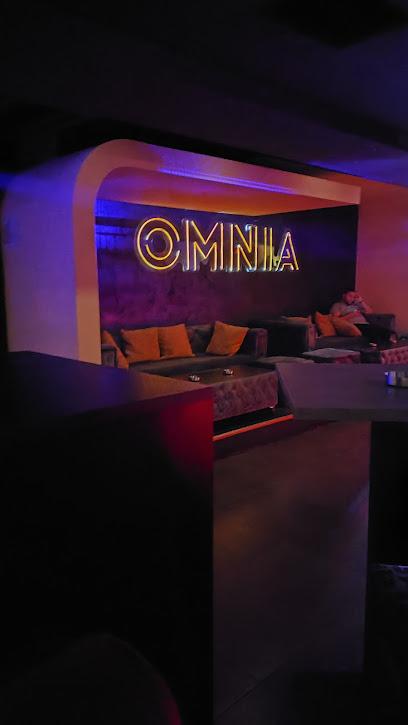
Ohrid Pearls Filevi - Ohridski Biseri Filevi
Discover the timeless elegance of Ohrid pearls at Filevi, where tradition meets exquisite craftsmanship. A lustrous legacy since 1928.
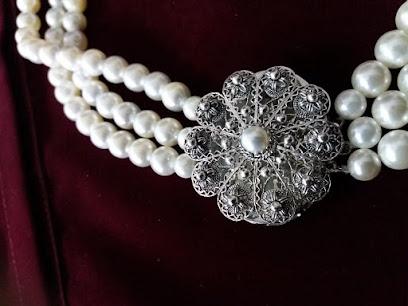
Royal Pearl
Discover exquisite, handcrafted jewelry at Royal Pearl in Ohrid. Find the perfect keepsake to remember your Macedonian adventure.
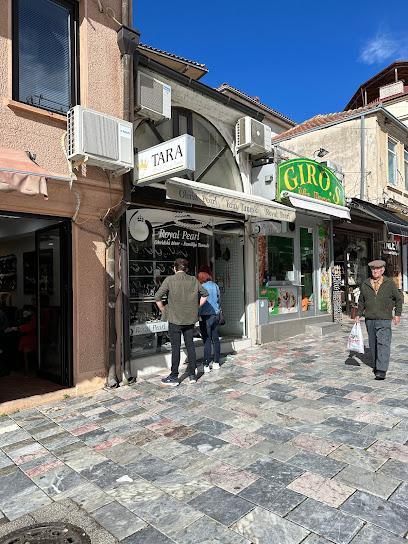
Ohrid Pearls & Silver Family Leveski
Experience the tradition of Ohrid pearl making. Discover handcrafted jewelry at Family Leveski, where Macedonian heritage shines.
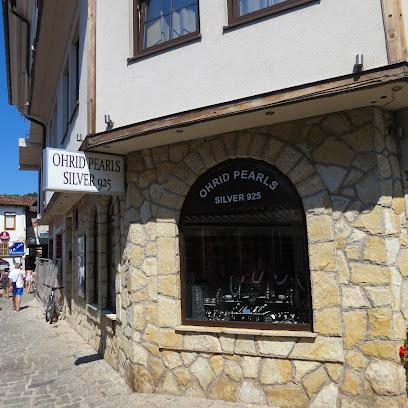
Fortuna Ohrid Pearls
Discover the lustrous beauty and time-honored tradition of handcrafted Ohrid pearls, a unique treasure from North Macedonia.
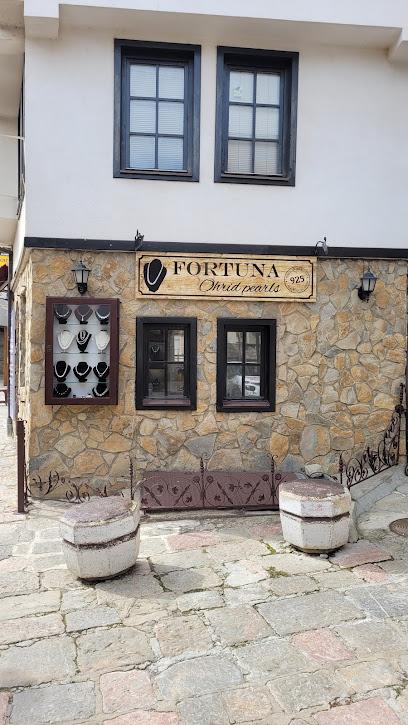
Ohrid Pearl Webshop
Discover the lustrous beauty and unique heritage of authentic Ohrid pearls at this traditional webshop in the heart of Ohrid, North Macedonia.
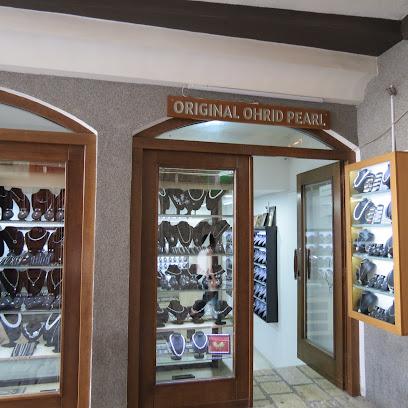
Discover Pogradec
Explore Pogradec's hiking trails, from easy lakeside strolls to challenging mountain treks, and discover the natural beauty of Lake Ohrid.
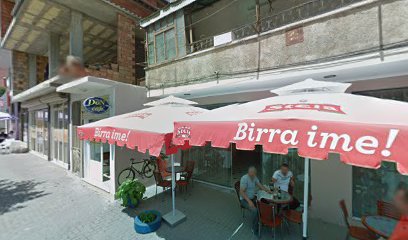
Essential places to dine
Restaurant Rosa e Tymosur
Experience authentic Albanian cuisine at Restaurant Rosa e Tymosur in Pogradec—where local flavors meet breathtaking lake views.
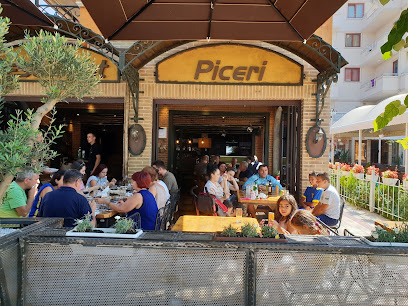
The Change
Discover the best of Albanian cuisine at The Change in Pogradec – where tradition meets modernity in every dish.
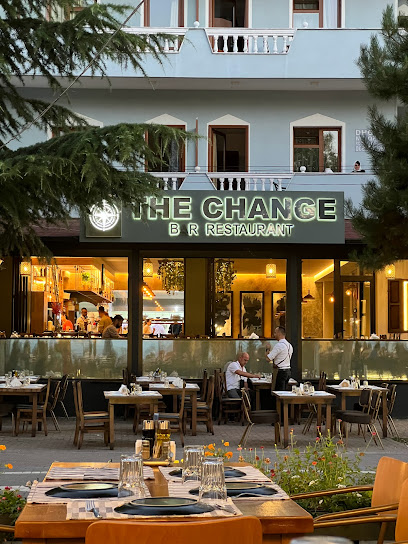
Restorant Cavos
Discover authentic Albanian cuisine at Restorant Cavos in Pogradec, where local flavors meet stunning lake views.
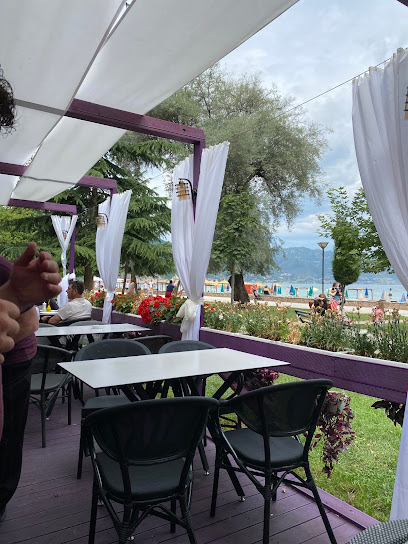
Restorant Zgara Familjare
Experience authentic Albanian cuisine at Restorant Zgara Familjare in Pogradec - where tradition meets flavor in a warm atmosphere.
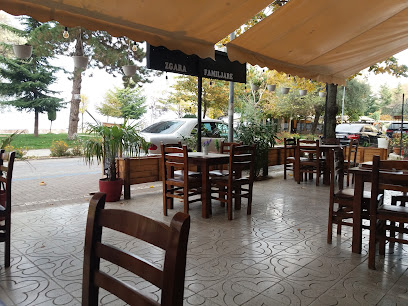
Guesthouse Bimbli
Experience authentic Albanian cuisine and cozy accommodations at Guesthouse Bimbli in scenic Pogradec.
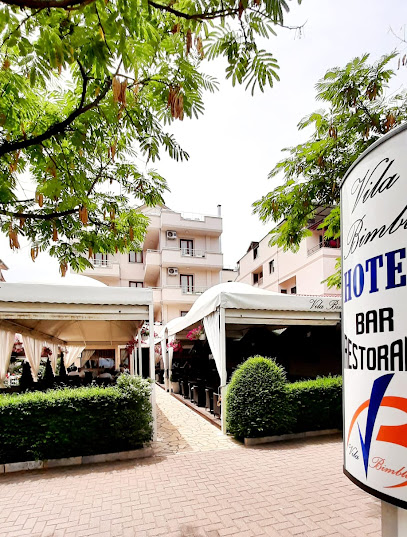
Sherlock Irish Pub
Discover the vibrant atmosphere of Sherlock Irish Pub in Pogradec - where traditional Irish hospitality meets lively local culture.
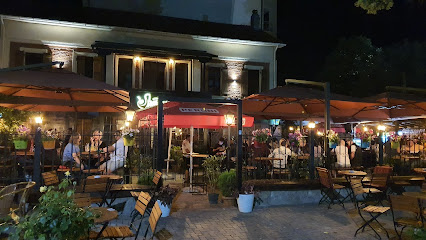
Taverna Ndona
Experience authentic Albanian cuisine at Taverna Ndona in Pogradec, where breathtaking lake views meet exceptional dining.
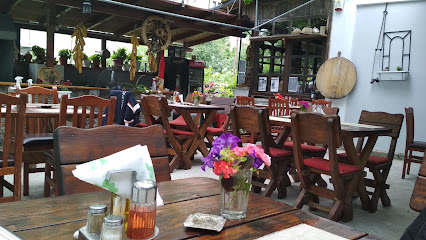
Restorant Poradeci
Experience authentic Albanian flavors at Restorant Poradeci in Pogradec, where local ingredients meet stunning lake views.
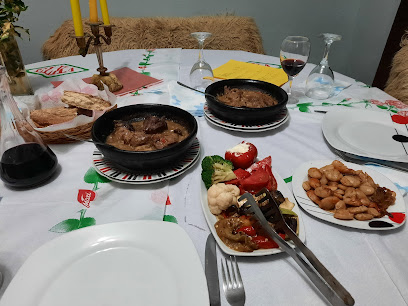
Rusi Grill
Discover authentic Albanian flavors at Rusi Grill in Pogradec - a delightful restaurant with affordable prices and exceptional service.
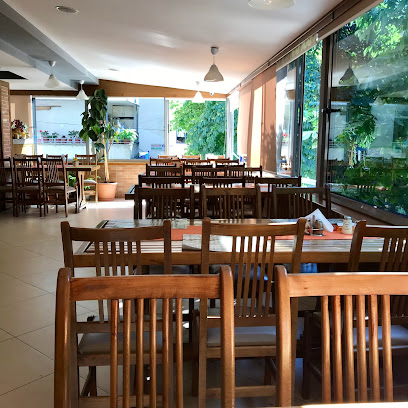
Pizza Restorant Artist
Discover authentic Italian flavors at Pizza Restorant Artist in Pogradec – where every pizza tells a story.
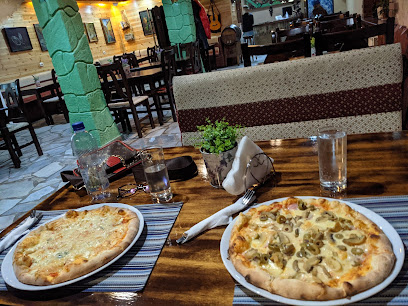
Restaurant Pizza Bulevard
Experience authentic Italian flavors at Restaurant Pizza Bulevard in Pogradec – where every pizza tells a story!
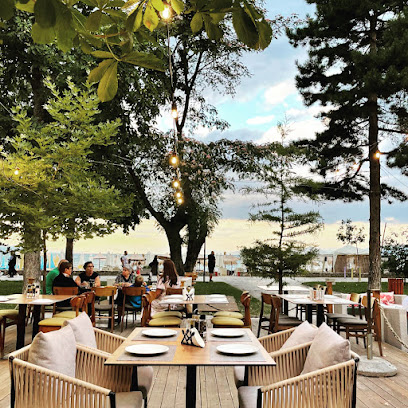
Casa di Pizza
Discover authentic Italian flavors at Casa di Pizza in Pogradec—where every slice tells a story!
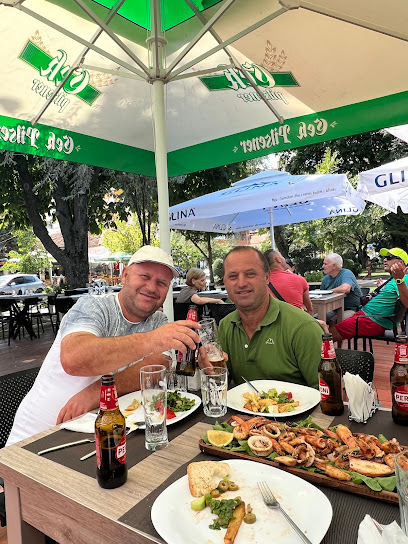
Restorant Poçerina
Experience authentic Albanian cuisine with stunning views at Restorant Poçerina in Pogradec - a culinary gem by Lake Ohrid.
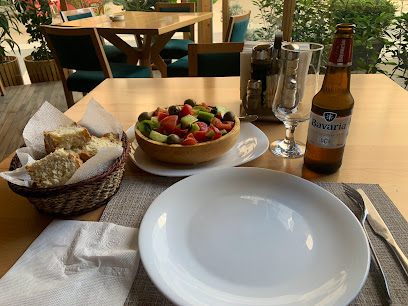
Restorant Tradita
Experience authentic Albanian flavors at Restorant Tradita in Pogradec - where tradition meets taste in every dish.
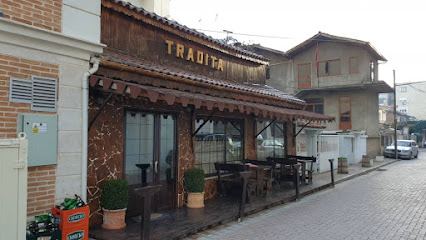
Fish Taverna Ladi
Experience the rich flavors of Albanian seafood at Fish Taverna Ladi in Pogradec—where every dish tells a story.
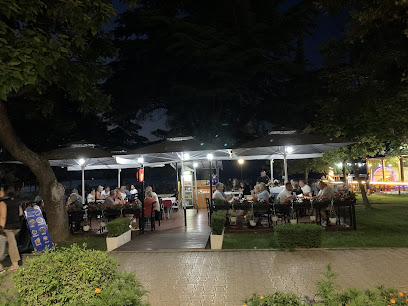
Markets, malls and hidden boutiques
Hotel Enkelana
Discover the charm of Hotel Enkelana, a serene resort hotel by Lake Ohrid in Pogradec, Albania, perfect for relaxation and adventure.
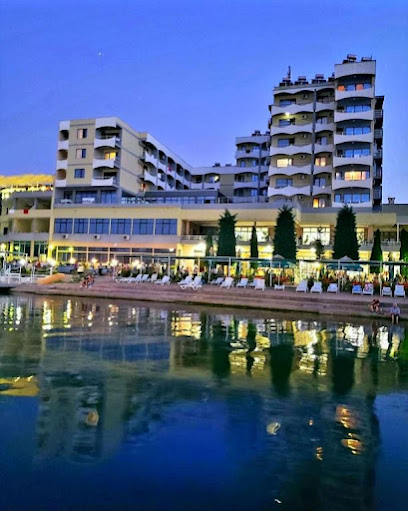
Restaurant Rosa e Tymosur
Discover the essence of Albanian cuisine at Restaurant Rosa e Tymosur, where every dish tells a story of tradition and flavor.
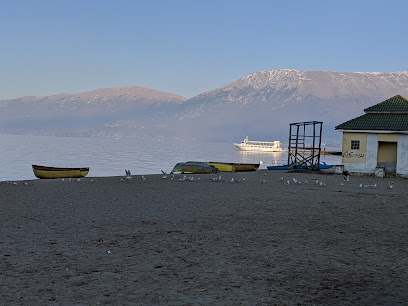
Taverna Ndona
Experience authentic Albanian cuisine with breathtaking views at Taverna Ndona, the culinary highlight of Pogradec.
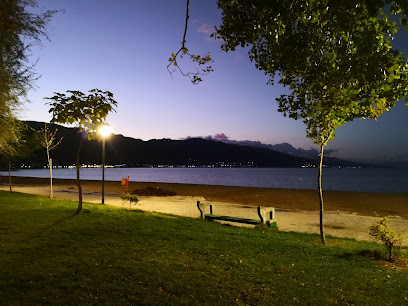
Garden Villa
Experience the perfect blend of coffee and stunning lake views at Garden Villa in Pogradec, Albania.
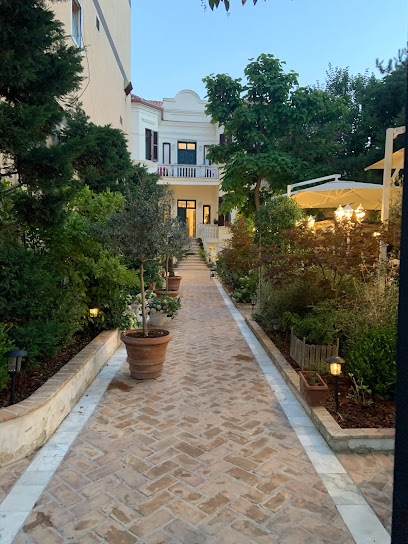
Pogradec Panoramic View Point
Discover the stunning Pogradec Panoramic View Point overlooking Lake Ohrid, a must-see historical landmark for nature lovers and history enthusiasts.
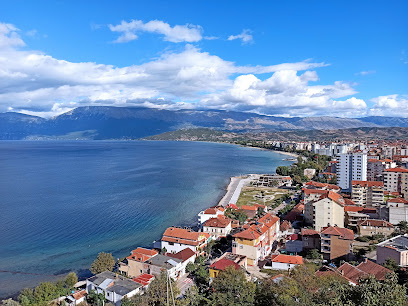
Kartodrom Pogradeci
Kartodrom Pogradeci: Thrilling go-kart racing experience in Pogradec, Albania, amidst breathtaking views of Lake Ohrid.
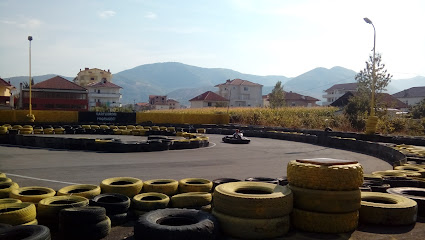
Berberi Guest House
Discover the charm of Pogradec at Berberi Guest House, where comfort meets authentic Albanian hospitality by the stunning Lake Ohrid.

Friends Bar-Restaurant
Discover the flavors of Albania at Friends Bar-Restaurant, a charming eatery with stunning views of Lake Ohrid.
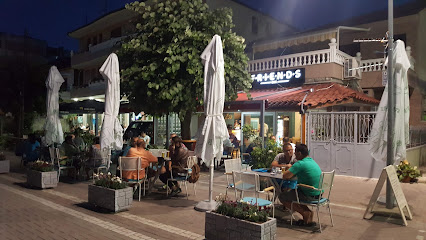
Piceri Rinia
Experience authentic Albanian cuisine at Piceri Rinia, a culinary treasure in the heart of Pogradec, perfect for every traveler.
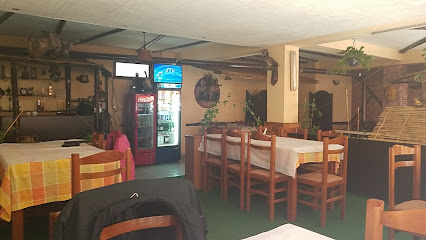
London Shop Pogradec
Explore fashion in Pogradec at London Shop, where local style meets unique clothing collections for every taste and occasion.
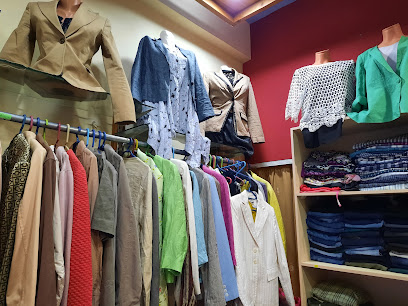
Visit Pogradec
Discover Pogradec's sports bar: where lively atmosphere meets stunning lake views and unforgettable local flavors.
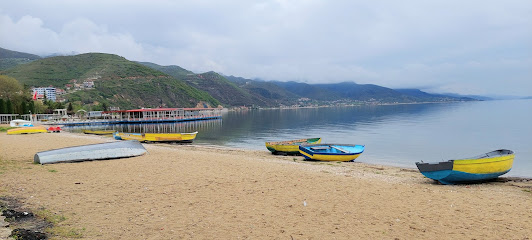
EURO MARKET POGRADEC
Explore the vibrant EURO MARKET POGRADEC, your go-to supermarket for local and international products in the heart of Pogradec, Albania.
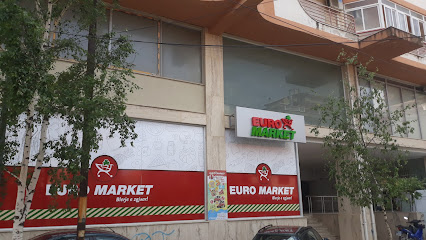
Kreperi & Pastiçeri Kanellë
Experience the sweetest delights at Kreperi & Pastiçeri Kanellë, where every crêpe and pastry is a taste of heaven in Pogradec, Albania.
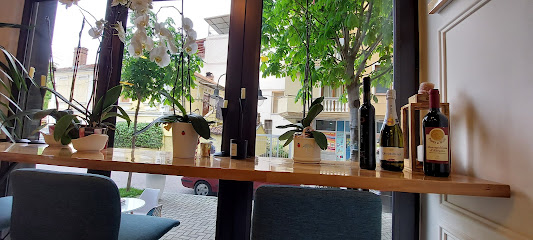
Woodcarving
Explore the enchanting world of woodcarving in Pogradec, where tradition meets artistry in handcrafted wooden treasures.
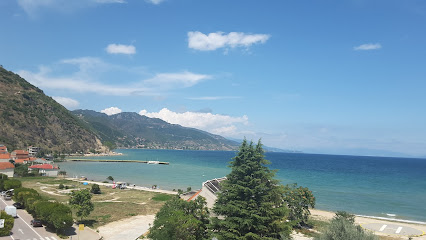
La Coquette
Explore La Coquette in Pogradec, Albania – a boutique offering a stunning selection of clothing and accessories reflecting local culture and modern trends.
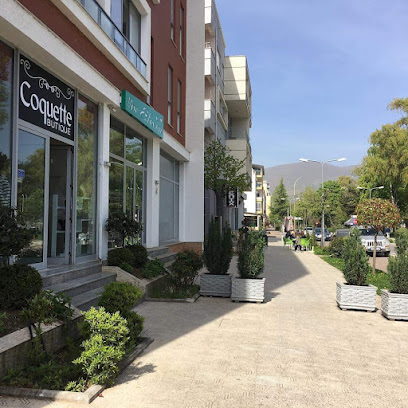
Essential bars & hidden hideouts
Sherlock Irish Pub
Experience the warmth of Irish culture in Pogradec at Sherlock Irish Pub, where live music and delicious food create memorable moments.
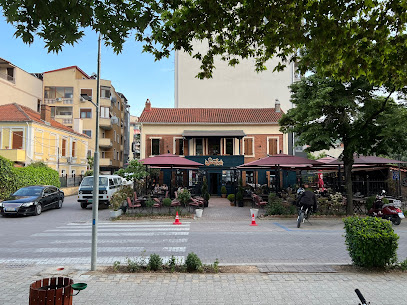
Bar Pelikani
Experience the charm of Pogradec with delightful drinks at Bar Pelikani, the perfect café and bar for tourists seeking relaxation and local flavors.
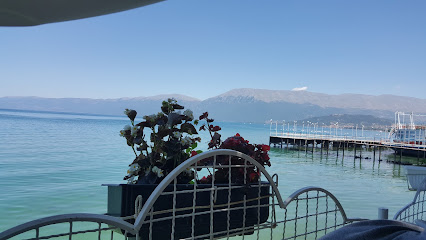
KAFENE
Discover KAFENE, a charming coffee shop and bar in Pogradec offering local brews and a cozy atmosphere for an authentic Albanian experience.
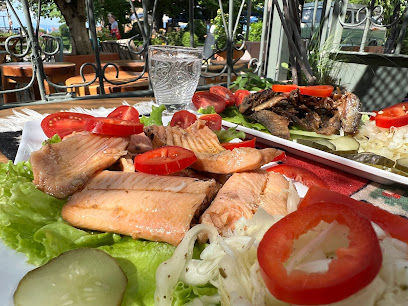
ZOICA.. Bar restorant
Experience authentic Albanian cuisine in the scenic town of Pogradec at ZOICA.. Bar Restaurant, where fresh flavors meet stunning views.
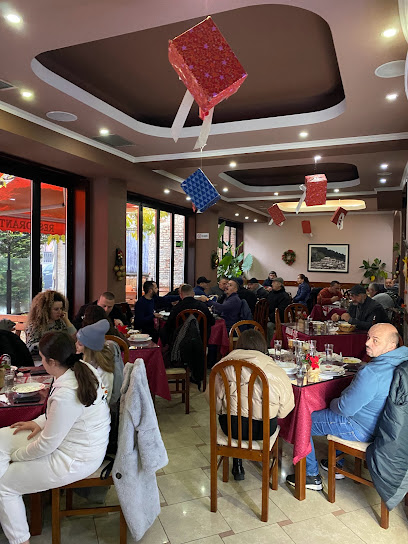
Bar Liqeni
Experience the tranquility of Lake Ohrid at Bar Liqeni, a picturesque café offering local flavors and stunning views in Pogradec, Albania.
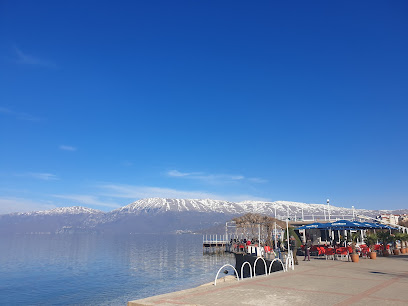
Friends Bar-Restaurant
Discover the lively charm of Friends Bar-Restaurant in Pogradec, where delicious cuisine meets an inviting atmosphere for every visitor.
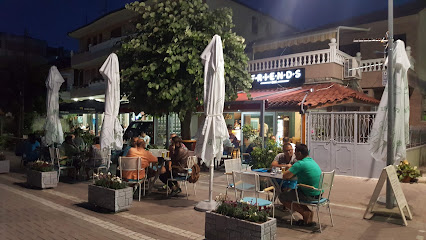
Fole Resto Lounge Bar & Rooms
Experience the vibrant flavors of Albania at Fole Resto Lounge Bar & Rooms, a culinary haven in Pogradec offering a delightful menu and warm hospitality.
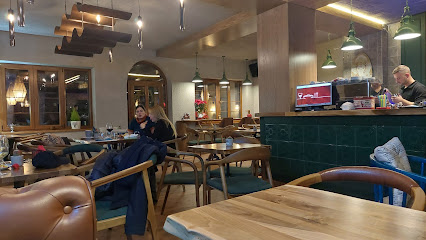
CHOICE Coffee-Drinks
Discover CHOICE Coffee-Drinks in Pogradec: A cozy bar and coffee shop offering delightful beverages amidst stunning scenery.
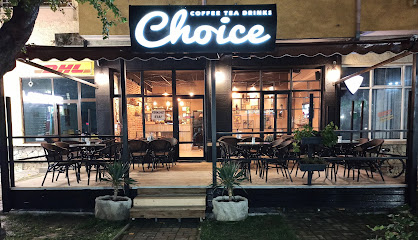
Den
Discover Den in Pogradec: Where exquisite cuisine and vibrant cocktails meet the charm of Albanian hospitality.
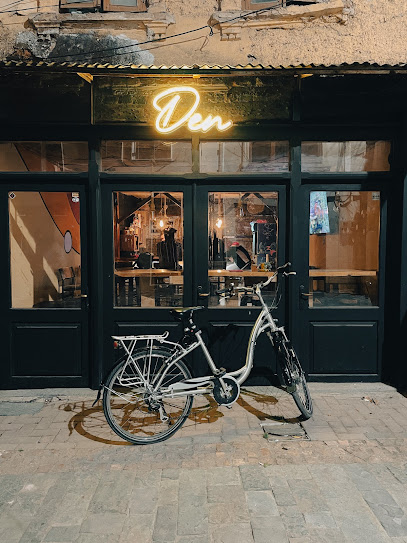
Casabar
Experience the vibrant atmosphere of Casabar in Pogradec, where local charm meets a diverse drink selection.
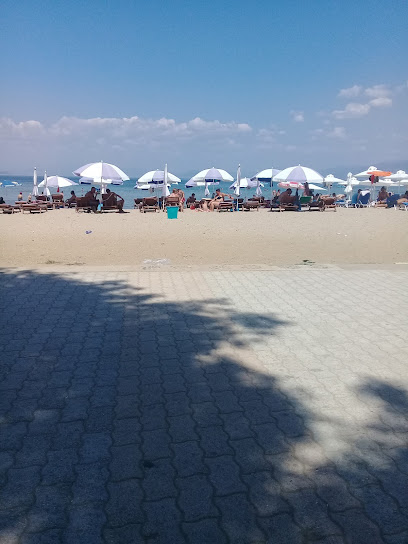
Bizanti Lounge Bar
Discover the lively Bizanti Lounge Bar in Pogradec, Albania, where exquisite cocktails meet a vibrant nightlife in a stunning lakeside setting.
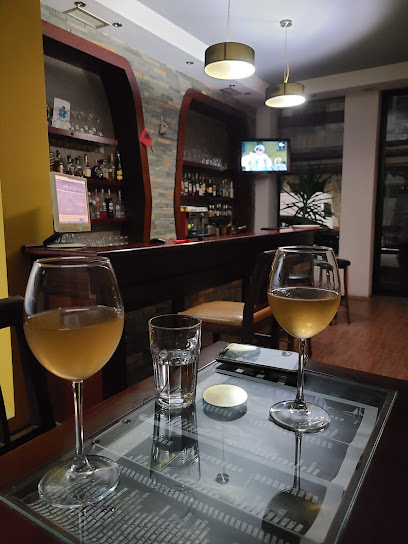
Bar Restorant Konaku
Experience authentic Albanian cuisine with stunning lake views at Bar Restorant Konaku in Pogradec, a must-visit for every traveler.
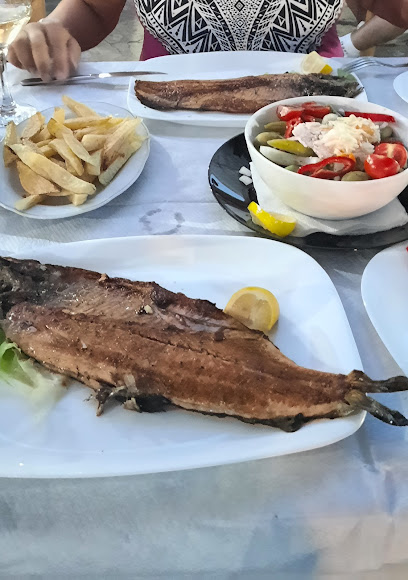
Eleven Bar
Discover the vibrant Eleven Bar in Pogradec, Albania—your perfect destination for drinks, entertainment, and stunning lake views.
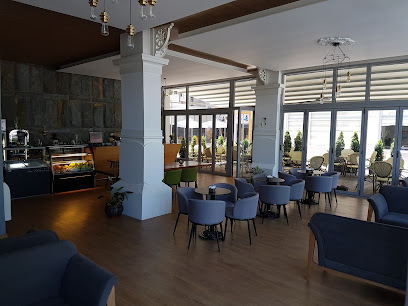
Butterfly Lounge Beach Bar
Discover the charm of Butterfly Lounge Beach Bar in Pogradec, Albania, where breathtaking views meet delightful refreshments and vibrant nightlife.
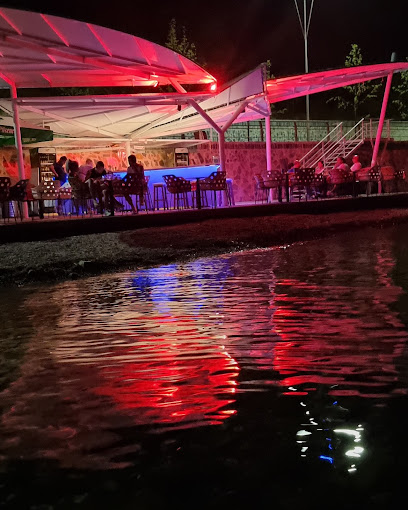
Local Phrases about Pogradec Region
-
- HelloTungjatjeta
[toon-gyah-tyeh-ta] - GoodbyeMirupafshim
[meer-oo-pahf-sheem] - YesPo
[poh] - NoJo
[yoh] - Please/You're welcomeJu lutem
[yoo loo-tem] - Thank youFaleminderit
[fah-leh-meen-deh-reet] - Excuse me/SorryMë falni
[muh fahl-nee] - How are you?Si jeni?
[see yeh-nee] - Fine. And you?Mirë. Po ju?
[mee-ruh. poh yoo] - Do you speak English?Flisni anglisht?
[flees-nee ahng-lee-sht] - I don't understandNuk kuptoj
[nook koo-p-toy]
- HelloTungjatjeta
-
- I'd like to see the menu, pleaseDo të doja të shikoja menunë, ju lutem
[doh tuh doh-ya tuh shee-koh-yah meh-noo-nuh yoo loo-tem] - I don't eat meatUnë nuk ha mish
[oo-neh nook hah meesh] - Cheers!Gëzuar!
[ge-zoo-ar] - I would like to pay, pleaseDo të doja të paguaja, ju lutem
[doh tuh doh-ya tuh pah-gwah-yah yoo loo-tem]
- I'd like to see the menu, pleaseDo të doja të shikoja menunë, ju lutem
-
- Help!Ndihmë!
[ndee-muh] - Go away!Shko larg!
[sh-koh l-arg] - Call the Police!Thirrni policin!
[theer-nee poh-lee-tseen] - Call a doctor!Thirrni një doktor!
[theer-nee nyuh dohk-tohr] - I'm lostJam humbur
[yahm hoom-boor] - I'm illJam i sëmurë
[yahm ee suh-moo-ruh]
- Help!Ndihmë!
-
- I'd like to buy...Do të doja të blija...
[doh tuh doh-ya tuh blee-yah] - I'm just lookingPo shikoj vetëm
[poh shee-koy veht-em] - How much is it?Sa kushton?
[sah koosh-ton] - That's too expensiveËshtë shumë e shtrenjtë
[uhsh-tuh shoo-muh eh shtreh-nyt] - Can you lower the price?A mund ta ulni çmimin?
[ah moon-d tah ool-nee ch-mee-meen]
- I'd like to buy...Do të doja të blija...
-
- What time is it?Sa është ora?
[sah uhsh-tuh oh-rah] - It's one o'clockËshtë një ora
[uhsh-tuh nyuh oh-rah] - Half past (10)Njëzet e gjysmë
[nyuh-zet eh gjuh-smuh] - MorningMëngjes
[muhn-jes] - AfternoonPasdite
[pahs-dee-teh] - EveningMbrëmje
[m-bruhm-yeh] - YesterdayDje
[djeh] - TodaySot
[soht] - TomorrowNesër
[neh-sahr] - 1Një
[nyuh] - 2Dy
[doo] - 3Tre
[treh] - 4Katër
[kah-tuh] - 5Pesë
[peh-suh] - 6Gjashtë
[gyahsh-tuh] - 7Shtatë
[shtah-tuh] - 8Tetë
[teh-tuh] - 9Nëntë
[nuhn-tuh] - 10Dhjetë
[th-yet-uh]
- What time is it?Sa është ora?
-
- Where's a/the...?Ku është një/...?
[koo uhsh-tuh nyuh/...?] - What's the address?Çfarë është adresa?
[ch-fah-ruh uhsh-tuh ah-dreh-sah] - Can you show me (on the map)?A mund të ma tregosh (në hartë)?
[ah moon-d tuh mah treh-gohsh (nuh hahr-tuh)] - When's the next (bus)?Kur është autobusi i radhës?
[koor uhsh-tuh ah-oo-t-boos-ee ee rah-thuhs] - A ticket (to ....)Një biletë (në ....)
[nyuh bee-leh-tuh (nuh ....)]
- Where's a/the...?Ku është një/...?
History of Pogradec Region
-
The Pogradec Region's history dates back to the Illyrian period when it was inhabited by the Illyrian tribe known as the Enchelei. Archaeological findings, including ancient artifacts and remnants of settlements, reveal that this area was a crucial part of the Illyrian civilization, which thrived from around 1000 BC until the Roman conquest in the 1st century AD.
-
Following the Roman conquest in the 1st century AD, the Pogradec Region became an integral part of the Roman Empire. The Romans left behind a rich legacy, including roads, fortifications, and villas. The Via Egnatia, an important Roman road that connected the Adriatic coast to Byzantium, passed through this area, facilitating trade and cultural exchange.
-
During the medieval period, the Pogradec Region came under the influence of the Byzantine Empire. This era saw the construction of numerous Orthodox churches and monasteries, some of which still stand today. In the 15th century, the region fell under Ottoman rule, which lasted for over 400 years. The Ottoman period introduced new architectural styles, traditions, and a rich cultural tapestry that continues to influence the region.
-
The late 19th and early 20th centuries were a time of significant change for Pogradec. The region played a role in the Albanian National Awakening, a period marked by efforts to promote Albanian culture and independence. Pogradec was officially incorporated into Albania following the country's declaration of independence in 1912. This period also saw the construction of the first modern buildings and infrastructure in the area.
-
During World War II, Pogradec was occupied by Italian and later German forces. The region witnessed significant resistance from local partisans fighting for liberation. After the war, Pogradec became part of communist Albania under Enver Hoxha's rule. The communist era brought industrialization, but also isolation from the rest of the world until the regime's collapse in 1991.
-
Since the fall of communism, Pogradec has experienced a cultural and economic revival. The region has embraced its rich history and natural beauty, becoming a popular tourist destination. Efforts to preserve its historical sites and promote its cultural heritage have helped Pogradec regain its place as a significant cultural hub in Albania.
Pogradec Region Essentials
-
Pogradec Region is located in southeastern Albania, near the border with North Macedonia. The nearest major airport is Tirana International Airport (TIA), approximately 140 kilometers away. From Tirana, you can take an intercity bus or hire a taxi to Pogradec. The bus journey takes around 3-4 hours. Alternatively, you can travel by train from Tirana to Pogradec, which offers a scenic route through the Albanian countryside.
-
Pogradec is a compact town, and many of its attractions are within walking distance. For longer trips within the region, local taxis are available and reasonably priced. Public buses and minibuses (furgons) operate within the town and connect to nearby villages and cities. Renting a car is also an option, providing the flexibility to explore the surrounding areas at your own pace.
-
The official currency in Albania is the Albanian Lek (ALL). Credit cards are accepted in some hotels, restaurants, and shops, but it is advisable to carry cash, especially in smaller establishments and rural areas. ATMs are available in Pogradec, but it is wise to withdraw sufficient cash in Tirana before traveling to ensure you have enough funds.
-
Pogradec is generally a safe destination for tourists. However, like any travel destination, it is advisable to take standard precautions. Avoid walking alone at night in unfamiliar areas and keep an eye on your belongings in crowded places. While there are no specific high-crime areas targeting tourists, it is always best to stay vigilant and aware of your surroundings.
-
In case of emergency, dial 112 for immediate assistance. The local police station and medical facilities are available in Pogradec. It is recommended to have travel insurance that covers medical emergencies. For minor health issues, there are pharmacies in the town where you can purchase over-the-counter medications.
-
Fashion: Do dress modestly, especially when visiting religious sites. Avoid wearing overly revealing clothing. Religion: Do respect local customs and traditions. Always cover your head when entering churches and mosques. Public Transport: Do be respectful and give up your seat to elderly passengers. Don't eat or drink on public transport. Greetings: Do greet people with a handshake. A slight bow of the head is also a sign of respect. Eating & Drinking: Do try local delicacies and accept food offerings graciously. Don't refuse hospitality, as it is considered impolite.
-
To experience Pogradec Region like a local, visit the local markets where you can buy fresh produce and traditional Albanian goods. Engage with locals, as they are often friendly and willing to share stories about the region's history and culture. Don't miss visiting the Lake Ohrid, which is a UNESCO World Heritage Site. For a unique experience, take a boat ride on the lake to enjoy its stunning scenery and visit the historic Drilon Springs.
Nearby Cities to Pogradec Region
-
Things To Do in Berat
-
Things To Do in Tirana
-
Things To Do in Tepelenë
-
Things To Do in Patos
-
Things To Do in Kavajë
-
Things To Do in Krujë
-
Things To Do in Gjirokastër
-
Things To Do in Vlorë
-
Things To Do in Durres
-
Things To Do in Saranda
-
Things To Do in Lezhë
-
Things To Do in Ioannina
-
Things To Do in Prizren
-
Things To Do in Corfu
-
Things To Do in Meteora








